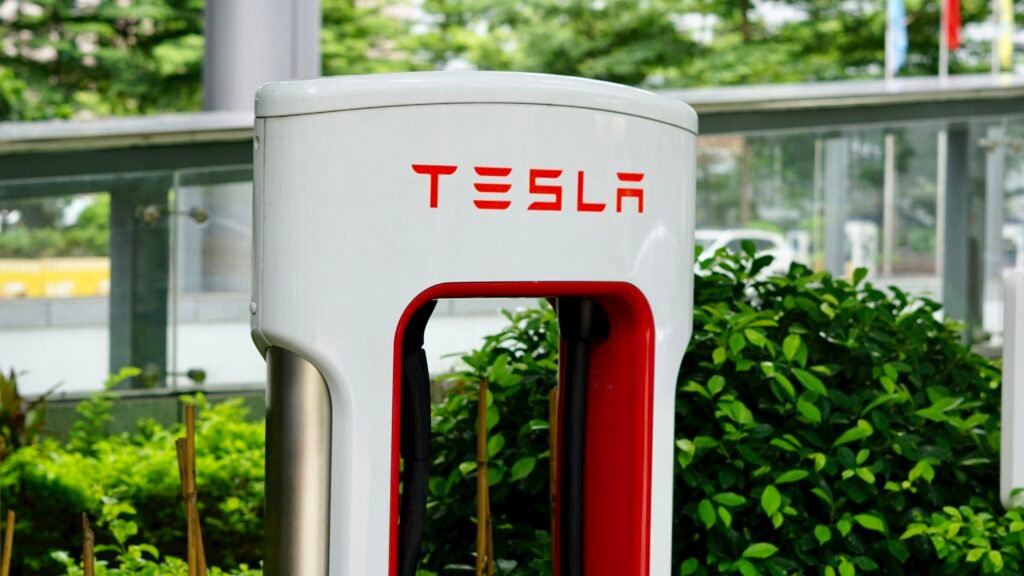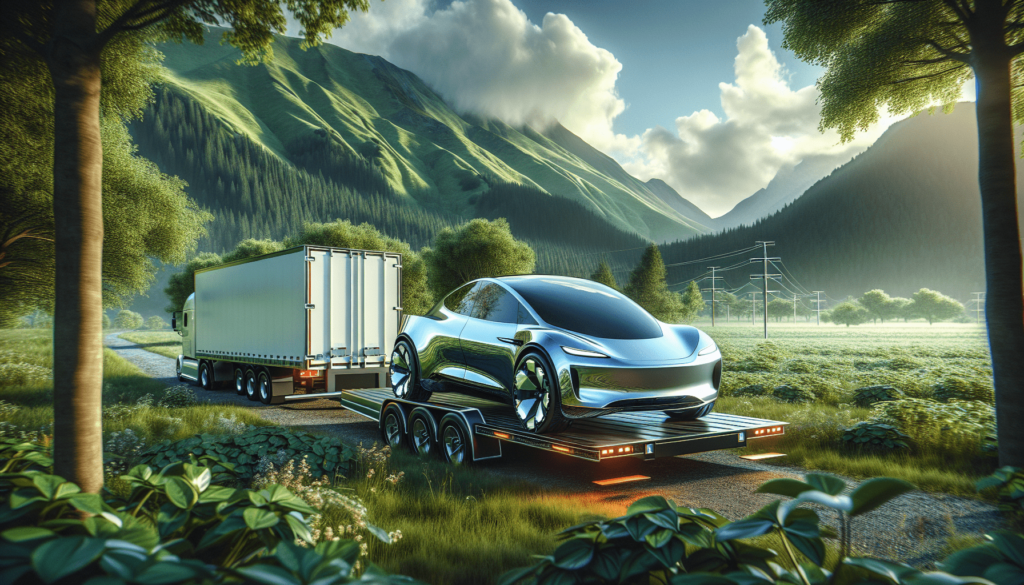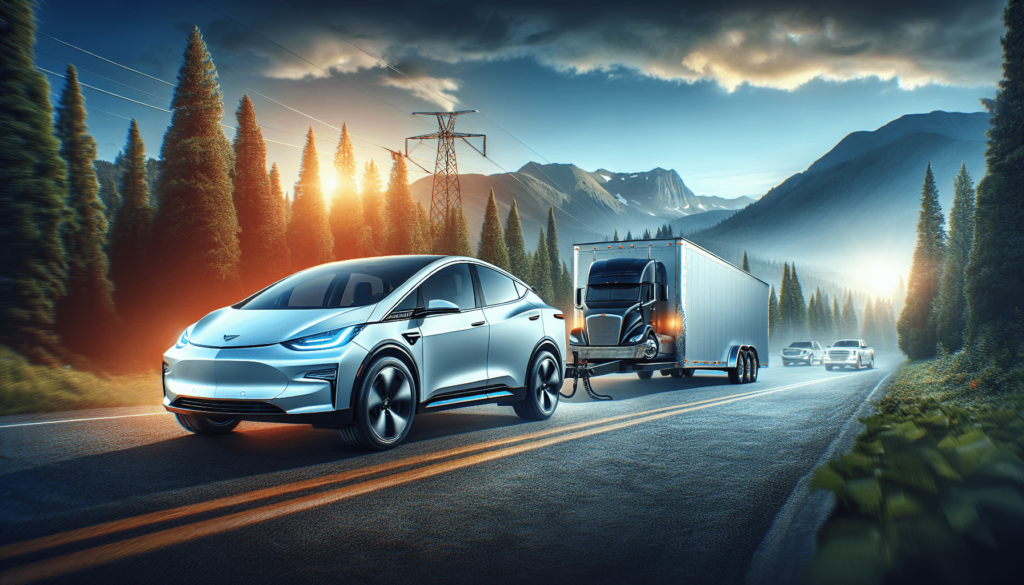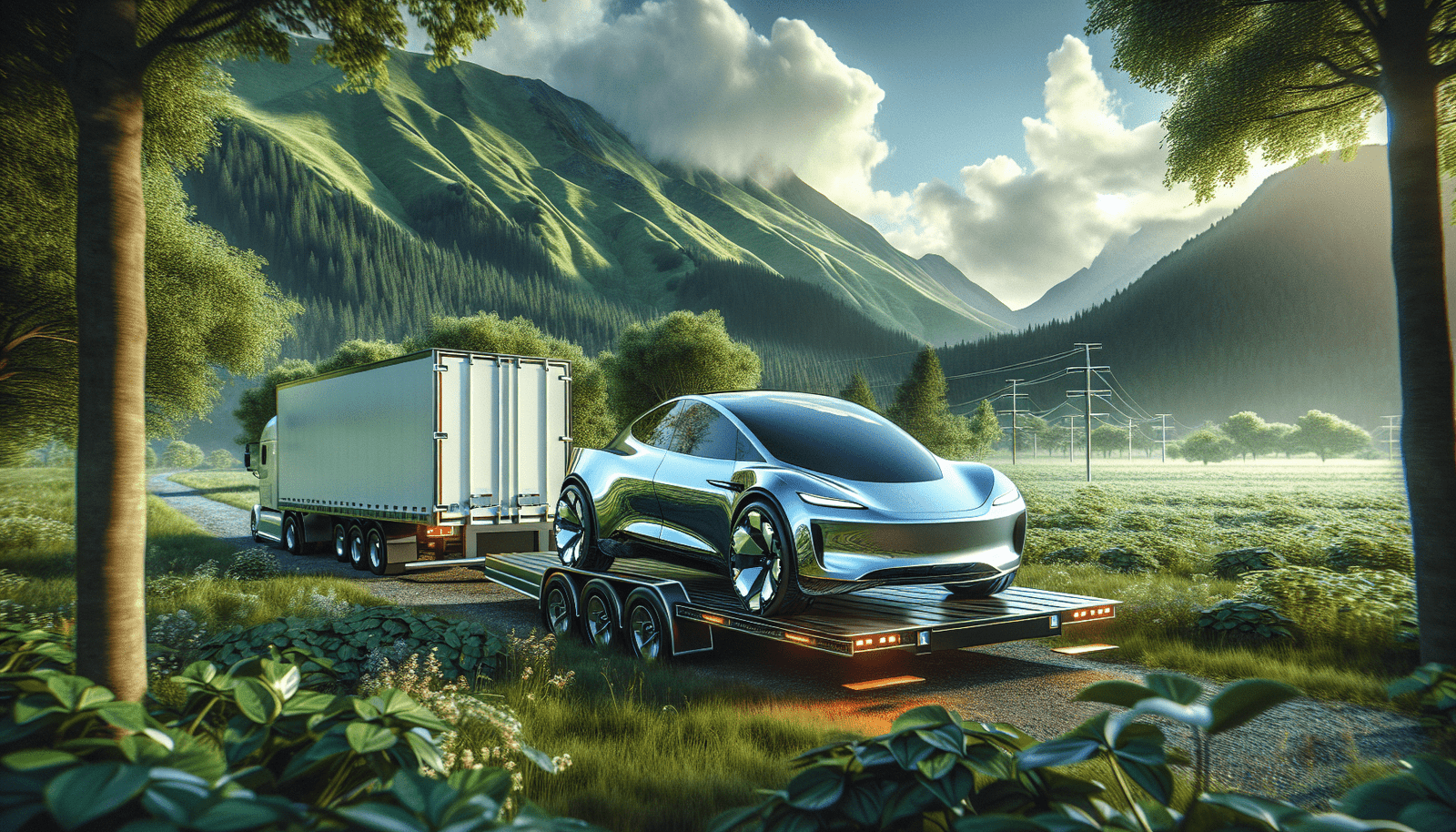You’re probably wondering if your trusty electric vehicle can handle the hefty job of towing, right? It’s a reasonable question, especially as electric vehicles (EVs) continue to surge in popularity. Gone are the days when they were just the small, zippy cars for city driving. Today’s EVs boast impressive capabilities, but towing is a whole different ball game. This article explores whether electric vehicles are up to the challenge of towing and what that means for your future adventures on the road.

Understanding Electric Vehicles
Comparison of electric vs traditional vehicles
You might be wondering how electric vehicles (EVs) stack up against their traditional counterparts. While traditional vehicles rely on internal combustion engines that burn fuel to produce power, electric vehicles run on electricity stored in batteries. This fundamental difference brings about a sea change in how these vehicles operate, their environmental impact, and their maintenance needs. Electric vehicles offer a quieter, smoother ride and are praised for their instant torque and acceleration. However, the initial cost can be higher though you may find that the savings on fuel and maintenance over time can make up for this.
How electric vehicles work
Diving a bit deeper into the workings of an EV, you’ll find that it’s all about the electric motor and the battery. The battery provides the juice, and the electric motor puts the wheels in motion. What’s fascinating is how efficiently this system works—the transfer of energy from the battery to the motor is much more efficient than the process of burning fuel in a traditional engine. Plus, the simplicity of an EV’s drivetrain means fewer moving parts, which translates to potentially lower maintenance needs.
Battery capacity and power output
You’re likely curious about the terms ‘battery capacity’ and ‘power output’ since they’re critical in the EV world. Battery capacity, measured in kilowatt-hours (kWh), essentially tells you how much electricity the battery can store and, consequently, how far the vehicle can travel on a single charge. Power output, on the other hand, affects the vehicle’s acceleration and speed. Higher capacity doesn’t always mean more power, but it does usually mean a longer range.
Electric Vehicles and Towing Capacity
Defining towing capacity
When we talk about towing capacity, we’re referring to the maximum weight your vehicle can tow. It’s vital that you stick within this limit for the safety of yourself and others on the road, as well as to avoid damaging your vehicle. Towing capacity is determined by a combination of factors including the vehicle’s power, brakes, chassis strength, and transmission.
The impact of vehicle design on towing
The design of a vehicle plays a crucial role in its towing capabilities. For electric vehicles, considerations such as battery placement can impact weight distribution, which is essential for stable towing. Aerodynamics also becomes increasingly important as poor aerodynamics can significantly impact range, especially when towing.
Current electric vehicles with notable towing capabilities
Today, there are several electric vehicles that boast impressive towing capacities, putting to bed any doubts about whether EVs can handle serious towing tasks. For instance, certain models of the Tesla Model X, Audi e-tron, and Rivian R1T have demonstrated commendable towing capabilities, showing that electric vehicles can indeed be practical for those who need to tow trailers, boats, or caravans.
Technological Advances in EV Towing
Improvements in battery technology
One of the keys to enhancing towing with electric vehicles lies in battery technology. Advances in battery chemistry and design are paving the way for higher capacity batteries that are lighter and more efficient. This means EVs can travel further on a single charge, even when towing heavy loads.
Regenerative braking and its benefits for towing
Regenerative braking is a feature of EVs that recovers energy typically lost during braking, using it to recharge the battery. When towing, this technology is particularly beneficial as the additional weight increases the amount of energy that can be recovered. This can somewhat mitigate the range loss associated with towing.
Software enhancements for towing efficiency
Automakers are also leveraging software to improve the towing experience. For example, some vehicles come with towing-specific modes that adjust the power distribution and regenerative braking settings to optimize for towing. This can help with managing the additional weight and improving overall efficiency.
The Physics of Towing with an Electric Vehicle
Weight distribution and its importance
When it comes to towing, getting the weight distribution right is non-negotiable. Proper distribution ensures stability and control, reducing the risk of accidents. For electric vehicles, which often have heavy batteries placed low in the chassis, this can actually be an advantage, offering a stable towing platform.
Effect of towing on acceleration and braking
Towing affects both acceleration and braking. The extra weight means your vehicle will take longer to speed up and slow down. For EVs, this effect can be more pronounced due to the instant torque they provide. Understanding this and adjusting your driving accordingly is crucial for safe towing.
Aerodynamics and its impact on towing with an EV
Aerodynamics plays a big role in how efficiently an EV can tow. The additional drag from towing a trailer or caravan can significantly reduce an electric vehicle’s range. Some EV designs are more conducive to efficient towing, with sleek lines that help minimize this drag and maintain better range.

Range Considerations While Towing
How towing affects range
It’s no secret that towing can take a chunk out of your EV’s range. The extra weight and aerodynamic drag mean the vehicle needs to use more energy to maintain speed, reducing the distance you can travel per charge. This is a crucial consideration for planning long trips that involve towing.
Strategies to maximize range while towing
There are several strategies you can employ to maximize your EV’s range while towing. These include driving at steady speeds to maintain efficiency, carefully planning your route to include charging stops, and ensuring your tires are properly inflated to reduce rolling resistance.
Real-world examples of range impact
Real-world examples have shown that towing can reduce an EV’s range by 20% to 40%, depending on factors like the weight being towed and the driving conditions. Understanding this impact is essential for effective trip planning and avoiding range anxiety.
Charging Infrastructure and Towing
Availability of charging stations
The availability of charging stations is a critical factor for towing with an EV. While the network of charging stations is rapidly expanding, there are still areas where they are sparse. Planning your towing trips to ensure availability of chargers along your route is essential.
Charging time considerations while on a towing trip
Charging times are another consideration. While modern fast chargers can significantly reduce charging time, towing a trailer means you’ll need more frequent charges, extending total trip time. Planning for these longer stops is an essential part of your travel itinerary.
Future enhancements in charging infrastructure
There is optimism for the future as enhancements in charging infrastructure are underway. These include more widespread fast-charging stations and potentially even dedicated towing charging bays to accommodate the unique needs of vehicles towing trailers or caravans.

Safety Considerations
Braking distances with additional weight
When towing, the additional weight significantly affects your braking distance. It’s imperative to allow for this longer distance when following other vehicles or approaching stops. Electric vehicles, with their regenerative braking systems, can help mitigate this to some extent, but caution and foresight remain vital.
Stability control and traction
Modern electric vehicles are equipped with advanced stability control and traction systems that can adjust to the demands of towing. These systems help maintain control and prevent skidding or swaying, contributing to a safer towing experience.
Vehicle and trailer compatibility
Ensuring that your vehicle and trailer are compatible is crucial for safety. This includes not just weight limits, but also ensuring the hitch setup and connections are suitable for your EV. Misalignment in this area can lead to dangerous situations on the road.
Economic Aspects of EV Towing
Cost comparison between EV and traditional vehicles for towing
When considering the economics of towing with an EV, the initial higher vehicle cost is often offset by lower operating costs. Electricity is generally cheaper than gasoline or diesel, and EVs typically have lower maintenance costs due to fewer moving parts. This can make EV towing more economical in the long run.
Long-term savings on fuel and maintenance
The long-term savings on fuel and maintenance can be significant with an EV. The efficiency of electric motors and advances in battery technology mean that, despite the higher energy use when towing, the cost per mile can still be lower than with traditional vehicles.
Possible incentives and rebates
To encourage the adoption of electric vehicles, many governments offer incentives and rebates that can also apply to EVs used for towing. These financial incentives can help offset the initial purchase price and make EV towing an even more attractive option.

Environmental Impact
Reduction in emissions while towing
One of the most compelling reasons to consider towing with an EV is the reduction in emissions. Even when towing heavy loads, electric vehicles produce zero tailpipe emissions, contributing to cleaner air and a healthier environment.
Benefits of using renewable energy sources
If you’re charging your EV with electricity from renewable sources, the environmental benefits are even greater. Using renewable energy to power your vehicle cuts down on greenhouse gas emissions and reduces reliance on fossil fuels.
Lifecycle analysis of EV towing
Considering the entire lifecycle of electric vehicles, including manufacturing and battery disposal, is important. While challenges remain, advancements in recycling and cleaner manufacturing processes are continually reducing the overall environmental impact of EVs and making them a sustainable choice for towing.
Future of Towing with Electric Vehicles
Predicted advancements in technology
The future looks bright for EV towing, with ongoing advancements in battery technology, electric motor efficiency, and aerodynamics. These developments promise to improve range, reduce charging times, and enhance towing capabilities, making electric vehicles even more suitable for towing tasks.
Potential new models and designs focused on towing
Manufacturers are beginning to recognize the demand for electric vehicles that can tow effectively. We’re likely to see new models and designs specifically engineered with towing in mind, offering improved performance, range, and safety features for towing enthusiasts.
Regulatory and market trends affecting EV towing
As more people embrace electric vehicles for towing, regulatory and market trends are shifting to support this change. From emissions regulations that favor zero-emission vehicles to consumer demand for more capable and efficient EVs, the landscape of towing is set for a significant transformation in the coming years.
Can towing be done effectively with an electric vehicle? Absolutely. With the right vehicle and some thoughtful planning, towing with an EV can be as effective as with a traditional vehicle, but with the added benefits of lower emissions, reduced running costs, and a quieter, smoother ride. As technology advances and infrastructure improves, the case for electric vehicles as the towing option of choice becomes even stronger.

